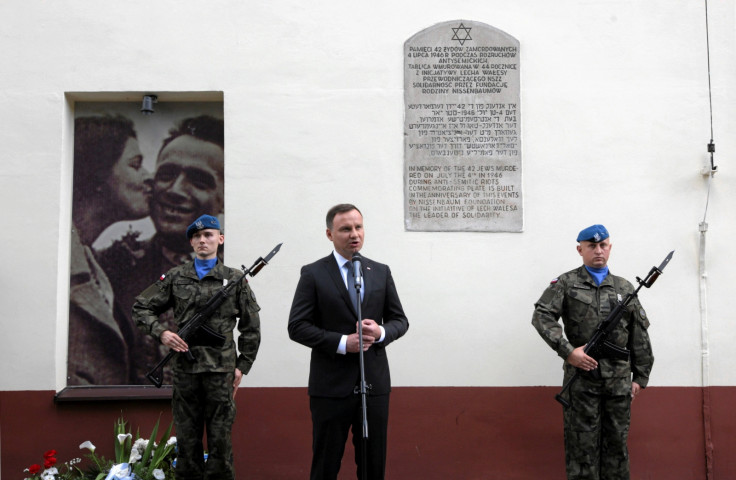Polish President Andrzej Duda vows to fight anti-Semitism at Kielce massacre anniversary
The massacre, the deadliest against Polish Jews after Second World War, had left 42 dead.

Polish President Andrzej Duda on 4 July marked the 70<sup>th anniversary of a post-war massacre in the town of Kielce, and stated that there is no place for racism and bigotry in today's Poland. The Kielce massacre is said to be the deadliest pogrom against Polish Jews after the Second World War.
It took place on 4 July, 1946 and was carried out by communist police, soldiers and a mob. Forty two people were killed in Kielce, 150km south of Warsaw and most of the victims were survivors of the Nazi Holocaust. Thousands of Jews left Poland in the wake of the massacre.
It began as an eight-year-old boy Henryk Blaszczyk, falsely claimed that he had been kidnapped by Jews. A Jewish house on 7 Planty street was attacked as police opened fire killing several people in the building. Around 20 people were beaten to death while others were shot dead. Two were killed with bayonets and the rest were stoned to death. The dead included children and women.
Twelve of the people responsible for the massacre were put on trial while nine were sentenced to death.
Duda singled out the then communist authorities saying, "It was the army and police who first opened fire on the Jewish residents of Kielce.
"In the free, sovereign, independent Poland there is no room for any prejudice, there is no room for racism, there is no room for xenophobia, there is no room for anti-Semitism," the BBC quoted him as saying.
Earlier, the president laid flowers on the graves of the victims in the Kielce Jewish cemetery accompanied by Chief Rabbi Michael Schudrich.
© Copyright IBTimes 2024. All rights reserved.





